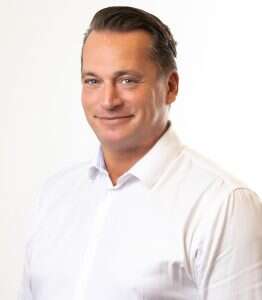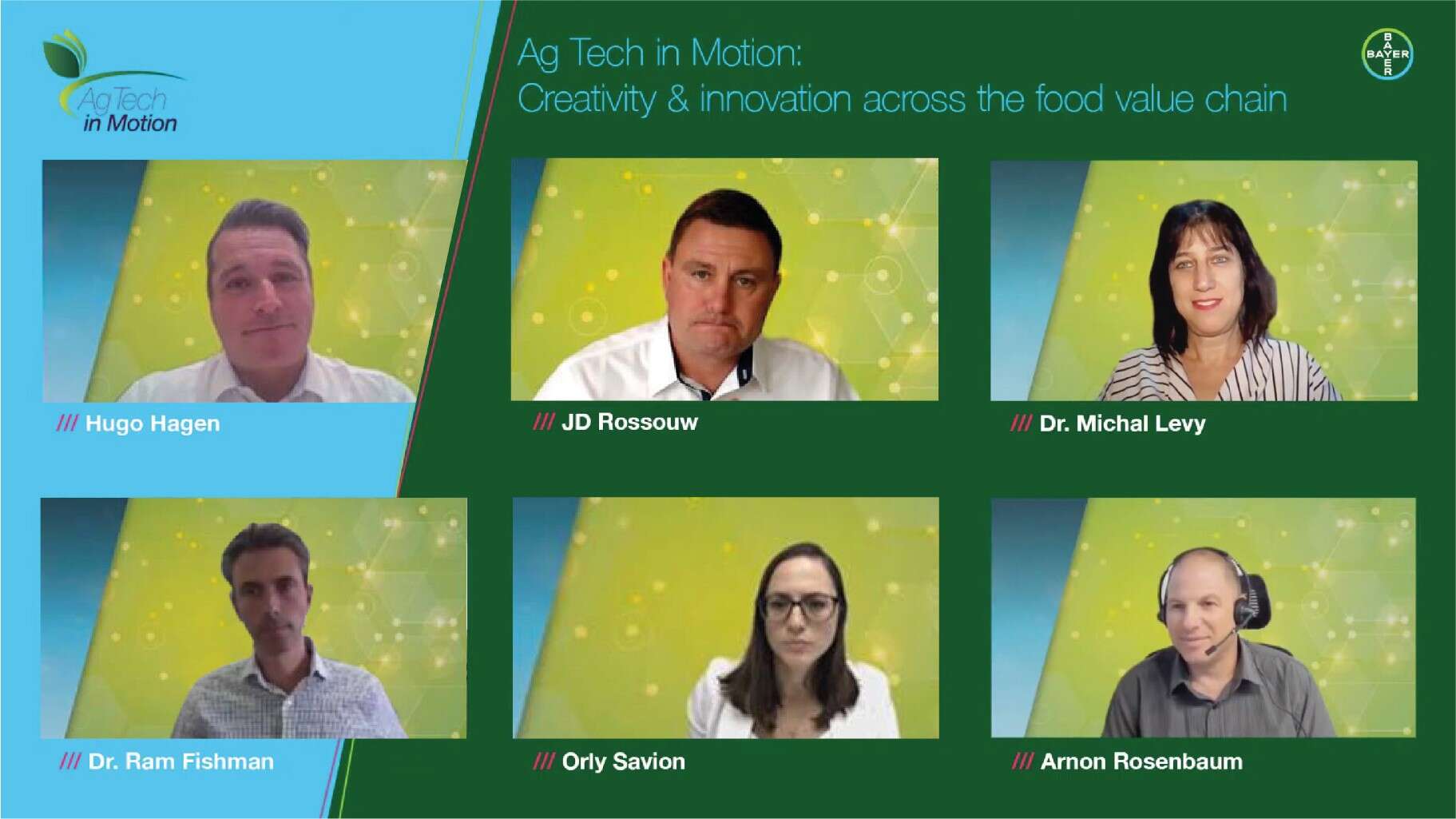Israeli innovators pursuing new solutions for agriculture towards a sustainable future were showcased globally last week, at a streamed symposium titled "Creativity and Innovation Across the Food Value Chain," hosted by Bayer Crop Science.
Follow Israel Hayom on Facebook and Twitter
The company, the agricultural technology arm of the German pharmaceutical giant, states that its mission centers on "delivering better solutions for all farmers while enabling more choice for consumers to help them and our planet thrive" – a principle in line with Bayer's commitment to the principles of sustainable development.

"The number of startups in ag-tech is simply outstanding, so it is only natural to showcase the range of Israel's ag-tech innovation capabilities in the frame of a global discussion about climate change, water scarcity, and the loss of biodiversity which are among the most pressing challenges of our time," said Hugo Hagen, managing director of Bayer Israel.
Commenting on Israel's part in Bayer's global agricultural innovation and sustainability mission, Hagen said, "Israel has the advantage of being very advanced when it comes to agricultural innovations and new technologies in ag-tech.
"These are vital tools to address some of the most important topics our planet is facing. How can we continue to feed a growing population, with less farmable land in the most sustainable way.
"Israel is well-positioned to address these issues through remarkable and state of the ag-innovations. Bayer is already involved in several collaborations in Israel and hopefully, we will see more in the future."
Unique collaborative ecosystem
A unique factor in Israel's innovation ecosystem is government support for private initiatives, as described by Dr. Michal Levy, the acting chief scientist at the Agriculture Ministry.
Speaking at the event, Levy, who works closely with the Israeli Innovation Authority, said the ministry supports basic research, applicative research and regional research and development centers, and collaborates with the IIA on startups by providing seed funding, and sponsoring pilot programs and implementation initiatives.
Dr. Orly Savion, CEO of EcoPhage, presented their work in directing nature's resources to prevent, treat and predict plant bacterial diseases, using phages – the natural enemies of bacteria.
EcoPhage is an Israeli agro-biotechnology company developing sustainable phage-based crop protection solutions to manage bacterial plant diseases. Phages that target bacteria are safe and inert to humans, animals and plants.
The company's proprietary technology platform screens and characterizes phage collections, selecting the most promising phage candidates ("super phages"). These phages form a basis for highly effective and sustainable phage cocktails that meet multiple agricultural product attributes for antimicrobial crop protection.
Dr. Ram Fishman of the NITSAN Sustainable Development Lab at Tel Aviv University, challenged the private sector to engage with smallholders more deeply.

NITSAN acts as a bridge between Israeli expertise and its innovation ecosystem in both the private and public sector, and the ground realities of developing countries in order to test and adapt Israeli solutions in the field.
The project also seeks to develop policies and business models that can overcome socioeconomic barriers that halt these solutions.
Arnon Rosenbaum, senior VP of technology and innovation at Israeli irrigation tech giant Netafim, explained that the scarcity of water resources is tied directly not only to planet and human health but to economics as well.
In 2050 there will be 4 billion people living under severe water stress, and 25% less water to go around in general, he noted, adding, "That's not the 2050 we want to see. Then there's all the land we're wasting. [Some] 76% of agricultural land isn't irrigated at all. And 75% of the land that is irrigated is wasted on inefficient flood systems. Only 7% of irrigated land is being irrigated efficiently. This has to change".
Precision irrigation is the solution to change the economics of agriculture, according to Netafim, and "we need a solution that increases farm productivity and resource efficiency at the same time. We must ensure better adoption by smaller farmers which represent a large portion of global food production. The combination of drip and technology enables to address additional applications such as improved accuracy and added fertigation planning."
Subscribe to Israel Hayom's daily newsletter and never miss our top stories!




